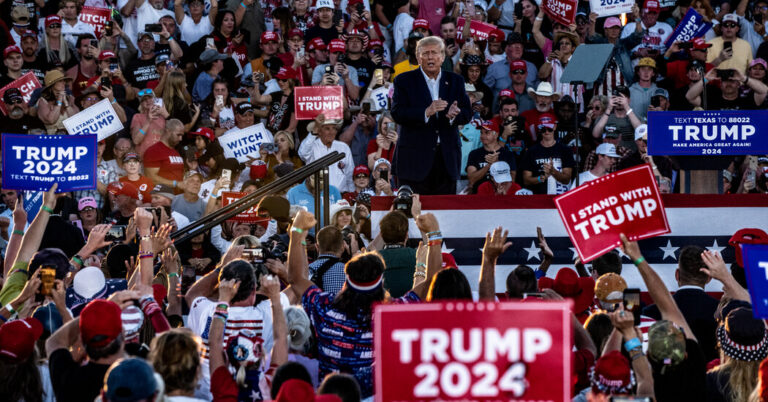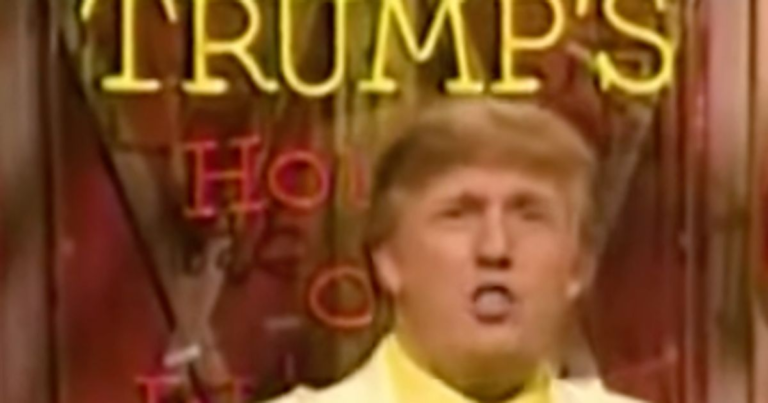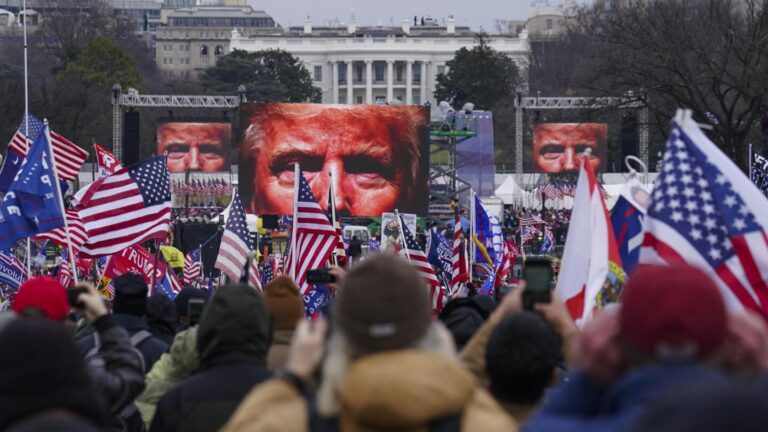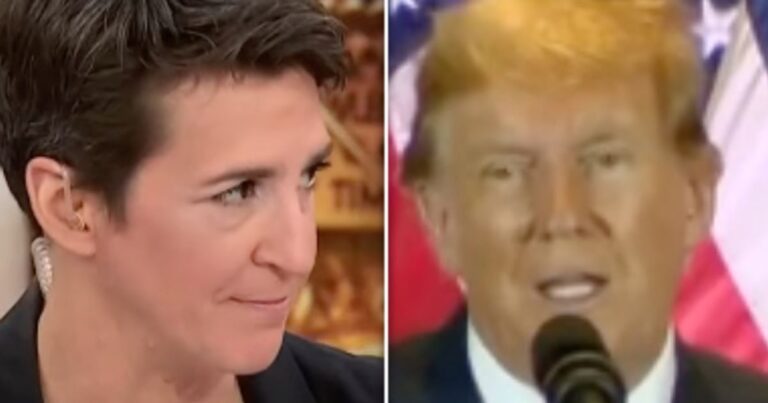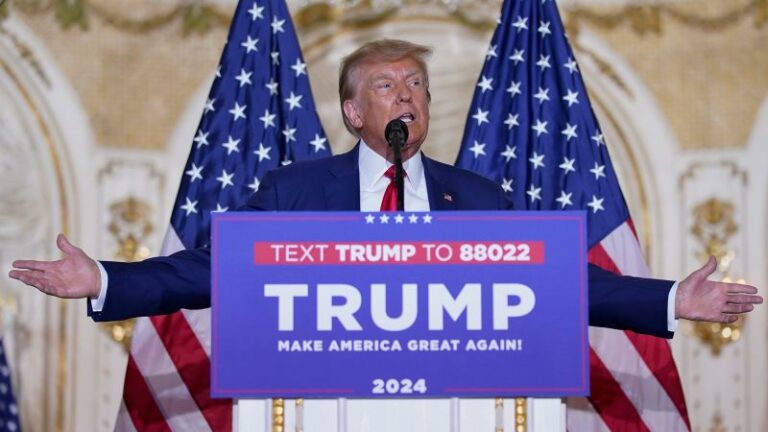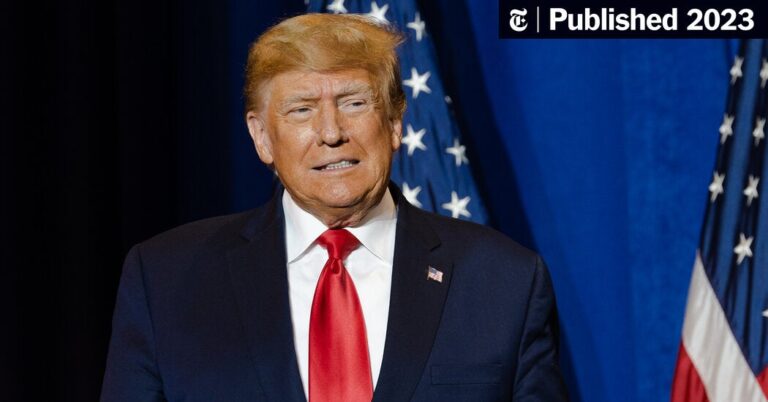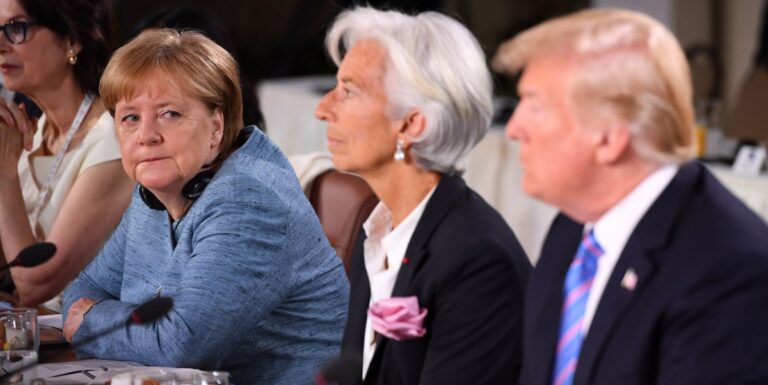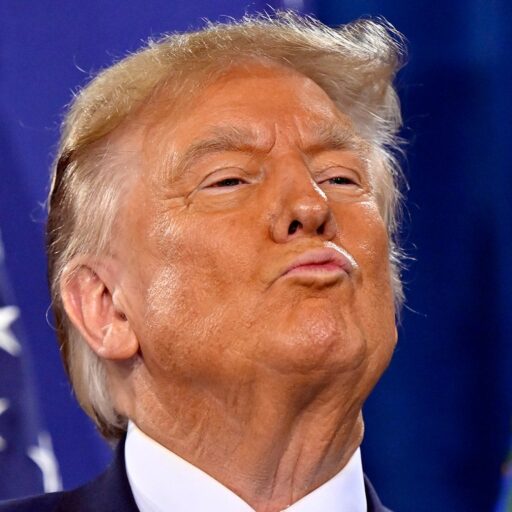CNN
—
Former President Donald Trump made a speech at his Mar-a-Lago resort on Tuesday night after he was arraigned in Manhattan on felony charges of falsifying business records – and delivered a barrage of false claims that have been previously debunked.
Trump pleaded not guilty to all the charges Tuesday.
The former president was repeatedly inaccurate when he pivoted to the subject of the federal investigation into his handling of official documents. He also repeated some of his favorite falsehoods on a variety of other subjects.
Here is a fact check of some of Trump’s claims.
Trump, denouncing the August federal search of Mar-a-Lago, claimed that the Presidential Records Act requires prolonged negotiations over the return of documents.
He said: “Just so everyone knows, I come under what’s known as the Presidential Records Act, which was designed and approved by Congress long ago just for this reason. Under the act, I’m supposed to negotiate with NARA, the National Archives and Records Administration.” He went on to disparage NARA.
Facts First: Trump’s claim is false. The Presidential Records Act says that, the moment a president leaves office, the National Archives and Records Administration gets custody and control of all presidential records from his administration. Nothing in the law says there should be a negotiation between a former president and NARA over a former president’s return of presidential documents – much less that there should have been a monthslong battle after NARA first contacted Trump’s team in 2021 to try to get some of the records that had not been handed over at the end of his presidency.
Jason R. Baron, former director of litigation at NARA, told CNN in an email last week (when we fact-checked a similar false claim by Trump): “The former President is simply wrong as a matter of law. As of noon on January 20, 2021, when President Biden took office, all presidential records of the Trump Administration came into the legal custody of the Archivist of the United States. Full stop. That means no presidential records ever should have been transferred to Mar-a-Lago, and there was no further talking or negotiating to be had.”
Timothy Naftali, a CNN presidential historian, New York University professor and former director of the Richard Nixon Presidential Library, described Trump’s claim as “nonsense” and said the former president’s description of the Presidential Records Act is “a matter of fantasy,” concocted to allow Trump to “pretend that he’s a victim.”
The law, Naftali said in an interview last week, makes clear that documents Trump had at Mar-a-Lago are presidential records that legally belong to the public and are legally required to be in NARA’s custody. The law provides “no room for debates and discussions between presidential advisers and the National Archives at the end a presidency” about such records, Naftali said.
You can read a longer fact check here.
George Soros and the district attorney
As he has on social media in the last month, former President Donald Trump invoked liberal billionaire donor George Soros while criticizing District Attorney Alvin Bragg in his speech – claiming that Bragg is a “radical left, George Soros-backed prosecutor.”
Facts First: This needs context. Soros did not make any donations to Bragg’s 2021 election campaign, and a Soros spokesperson, Michael Vachon, told CNN that the two men have never once communicated in any way; there is no evidence that Soros had any role in Bragg’s decision to prosecute Trump. However, Soros, a longtime supporter of Democratic district attorney candidates who favor criminal justice reform, did support Bragg’s election campaign indirectly: he was a major donor to a liberal political action committee, Color of Change PAC, that says it spent just over $500,000 on an independent expenditure effort in support of Bragg’s candidacy.
Vachon told CNN: “Between 2016 and 2022, George Soros personally and Democracy PAC (a PAC to which Mr. Soros has contributed funds) have together contributed roughly $4 million to Color of Change’s PAC, including $1 million in May 2021. None of those funds were earmarked for Alvin Bragg’s campaign. George Soros and Alvin Bragg have never meet in person or spoken by telephone, email, Zoom etc. There has been no contact between the two.”
Soros has been a frequent target of antisemitic conspiracy theories painting the Jewish philanthropist as a puppetmaster behind various US and international events. Color of Change president Rashad Robinson called Trump and his allies’ latest invocations of Soros both “antisemitic” and “anti-Black” he told CNN that the attacks are an overstatement of both Soros’ role in the PAC’s decision-making and the PAC’s role in Bragg’s election victory.
You can read a longer fact check here.
Defending his handling of government documents, which is the subject of an ongoing federal investigation, Trump repeated his false claim that that several other former presidents took documents with them upon leaving the White House.
Trump claimed that “openly taking boxes of documents and mostly clothing and other things to my home” is something “which President Obama has done.” He continued, “The Bushes have done. Jimmy Carter’s done. Ronald Reagan is done. Everybody’s done.”
Facts First: This is false, as the National Archives and Records Administration itself pointed out in a statement last year; there is no evidence that previous presidents did anything like what Trump did after the Presidential Records Act took effect in 1981 (beginning with the Reagan administration). In reality, NARA was granted custody of the presidential records of former Presidents Ronald Reagan, Barack Obama and both George Bushes as soon as these presidents left office, as required by the Presidential Records Act, and it was NARA, not those presidents, that moved those documents to temporary archival facilities – facilities managed by NARA.
NARA said in an October statement that it gained physical and legal custody of Obama, Reagan, H.W. Bush and W. Bush’s records, as well of those of President Bill Clinton, “when those presidents left office.” It said of the temporary facilities to which the documents were moved: “All such temporary facilities met strict archival and security standards, and have been managed and staffed exclusively by NARA employees. Reports that indicate or imply that those Presidential records were in the possession of the former Presidents or their representatives, after they left office, or that the records were housed in substandard conditions, are false and misleading.”
In other words, there is no equivalence between Trump’s handling of presidential documents and those previous presidents’. In those other cases, the presidential documents were in NARA’s possession and stored securely and professionally. In Trump’s case, the presidential documents found in haphazard amateur storage at Mar-a-Lago, including documents marked classified, were in Trump’s possession despite numerous attempts by both NARA and the Justice Department to get them back.
You can read a longer fact check here.
Trump claimed, as he has in the past, that he is being investigated by Fulton County, Georgia, District Attorney Fani Willis over a “perfect” phone call – which he made clear was his January 2, 2021, phone call to Georgia Secretary of State Brad Raffensperger, in which Trump unsuccessfully urged his fellow Republican to somehow “find” enough votes to overturn Joe Biden’s victory in the 2020 election in the state.
Then Trump said, “Nobody found anything wrong with that perfect call until a book promotion tour many months later. All of a sudden, they said, ‘You know, I remember Trump making a call. Let’s look at that.’”
Facts First: The claim that “nobody” found anything wrong with Trump’s call until months later is not even close to true. The Washington Post broke the story of the call the day after it happened, and there was an immediate uproar; on the day the story broke, Kamala Harris, then vice president-elect, called Trump’s comments a “bald-faced, bold abuse of power.” The day after that, some Democratic members of Congress asked the FBI to open an investigation – and Willis issued a statement calling reports about the call “disturbing” and indicated a willingness to investigate. Three days after the call, CNN ran a story headlined “Trump’s call could put the President in jeopardy, legal experts say.”
It wasn’t immediately clear what book tour Trump was talking about, but it’s possible he was referring to Raffensperger’s fall 2021 promotion of his book, “Integrity Counts,” in which he discussed the Trump call at length in interviews with various media outlets. By then, it had been clear for more than eight months that Willis was investigating Trump’s attempts to meddle with the 2020 election in the state.
Biden won Georgia by 11,779 votes; on the call, Trump expressed a desire to “find 11,780 votes.”
Trump claimed that the United States has “an economy that has been crippled by the biggest inflation we have seen in more than 60 years.”
Facts First: Trump’s “60 years” claim is an exaggeration, though the inflation rate does remain high by historical standards.
Last June, the year-over-year inflation rate hit its highest level since late 1981, 9.1%. But about 41 years does not round to “60 years,” much less “more than 60 years”. The actual highest year-over-year inflation rate for the last 60 years is 14.8% (in early 1980), far higher than mid-2022 levels. More importantly, year-over-year inflation has now declined for eight straight months, hitting 6% in February 2023 – not even close to the 60-year high.
This Trump claim is an example of how the former president tends to increase his exaggerated figures over time. At a campaign rally in Texas in late March, he claimed – also incorrectly – that the country had the highest inflation in “50 years.”
Early in his speech, Trump repeated one of his familiar lies about the 2020 election he lost. Trump claimed that there were “millions of votes illegally stuffed into ballot boxes, and all caught on government cameras.”
Facts First: This is a lie; there is, again, simply no basis for it. Trump’s more specific previous claims about supposed ballot box-stuffing by election workers in Georgia’s Fulton County have been thoroughly debunked; there is no sign that any such illegality occurred on a large scale. While there was a tiny smattering of voter fraud around the country, some of it committed by Trump supporters, numerous former senior officials from Trump’s administration and 2020 campaign, including the attorney general at the time of the election, William Barr, have acknowledged that there was not sufficient fraud to have changed the outcome.
Trump claimed, as he has before, that the US left behind “$85 billion worth of the best military equipment in the world” when it withdrew from Afghanistan in 2021.
Facts First: Trump’s $85 billion figure is false. While a significant quantity of military equipment that had been provided by the US to Afghan government forces was indeed abandoned to the Taliban upon the US withdrawal, the Defense Department has estimated that this equipment had been worth about $7.1 billion – a chunk of about $18.6 billion worth of equipment provided to Afghan forces between 2005 and 2021. And some of the equipment left behind was rendered inoperable before US forces withdrew.
As other fact-checkers have previously explained, the “$85 billion” is a rounded-up figure (it’s closer to $83 billion) for the total amount of money Congress has appropriated during the war to a fund supporting the Afghan security forces. A minority of this funding was for equipment.
